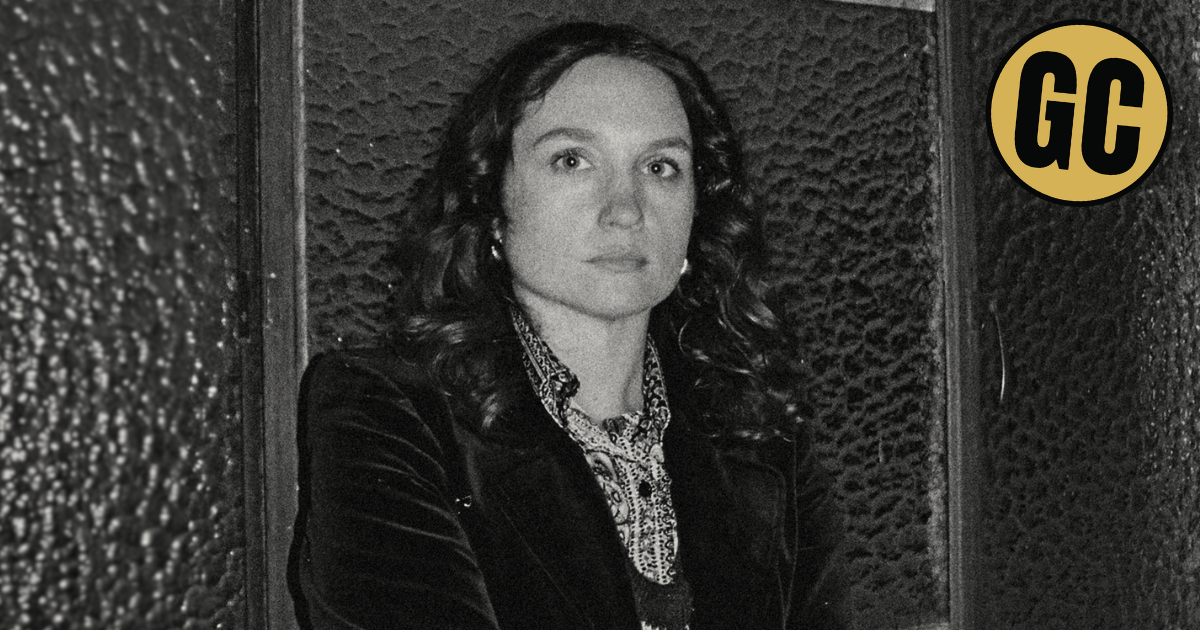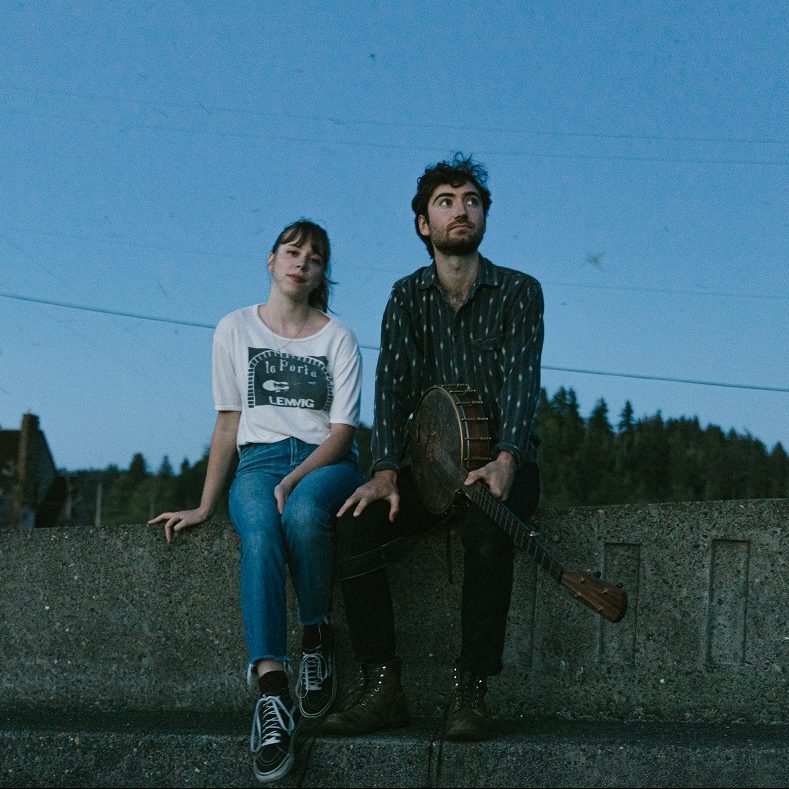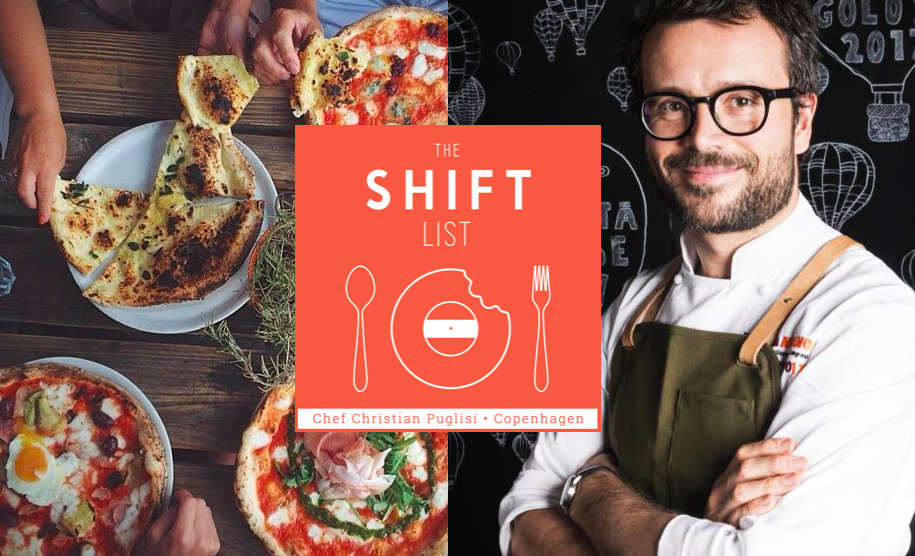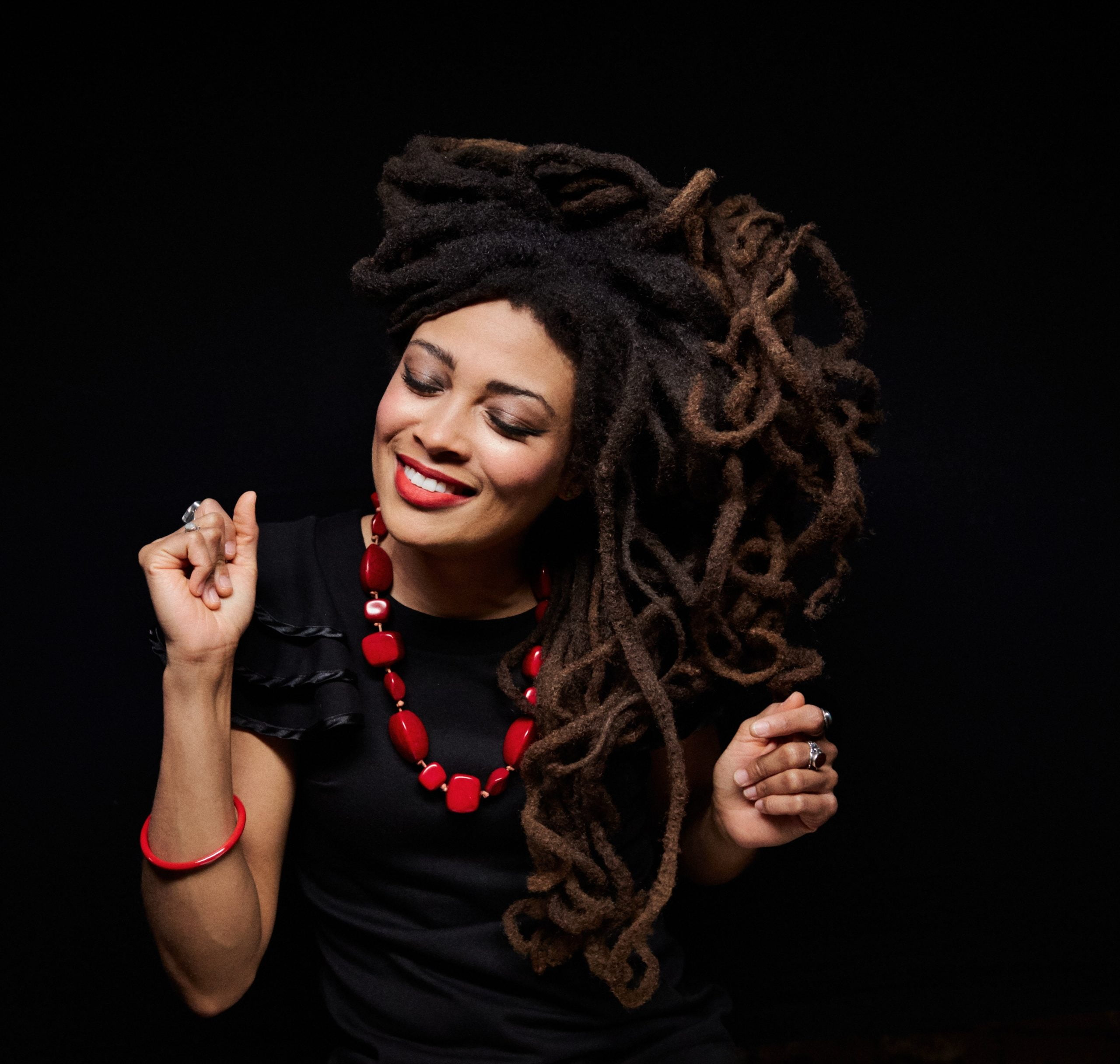Ever since she was a child in Arizona, Kassi Valazza has battled crippling stage fright. While that fear has lingered in the years that have followed, on her journeys touring, and living in Portland, then New Orleans, and (soon) Nashville, she’s been able to conquer it with intention, introspection, and consistency.
“I need to be alone for at least 10 minutes before I go out [on stage] so I can relax and do my breathing exercises,” Valazza tells Good Country. “More than anything, just getting into the groove of playing shows helps, because eventually your brain does turn it off a little bit. The nerves never fully go away, but at a certain point things just start to become muscle memory and you’re able to tune the other noise or inner thoughts out.”
Those three pillars also make up the foundation of her third album, From Newman Street, released May 2. On it Valazza spins her most personal web of songs yet, her vintage and Emmylou-esque warble taking listeners on a cosmic Americana journey that pulls back the curtain on vulnerability and universal struggle, forging a soundtrack of triumphant growth.
Songs like “Roll On” and “Your Heart’s A Tin Box” are ripe with melancholy, wisdom, and a bit of hindsight – plus bed-ridden humor – all of which is also reflected in the album’s artwork. It depicts a pensive Valazza in a staring contest with a breakfast-in-bed platter captured by friend and longtime photographer, Kait De Angelis.
“I wanted to capture exactly what I was going through when I was writing this album – I was really depressed, I was in bed, and I wasn’t getting up or going out a lot,” explains Valazza. “There’s also a funny and comedic side to that too where depression and anxiety are very real feelings that a lot of people have that I wanted to present in a playful, but still real way.”
Ahead of the release of From Newman Street, Good Country spoke with Valazza about the solitary environment the songs within it were born from, nature’s influence on her work, how she’s poised for a move to Nashville, and more.
Like the previous installments in your catalog, From Newman Street was self-produced. What’s your motivation behind that?
Kassi Valazza: It started out more from necessity, because then – and even now – I don’t have a ton of money, I’ve just been working with friends. I’m also a little bit of a control freak, too, though. Ultimately, I really trust the people I work with and think we’ve been able to make some great stuff without having to bring in an extra person. It’s made just as much sense to do things that way financially as it has from a creative sense.
Maybe not as much a financial decision, but certainly one that benefited on a creative level, was the move to record in Portland despite leaving there for New Orleans a couple years ago. What was it that took you down to the bayou?
I’d just been to New Orleans a lot and had a solid community of people I knew out there. I spent a lot of the summer on tour before I moved and was seeing a lot of those people, which gave me the idea of giving life in New Orleans a go before trying out Nashville. I’ve really enjoyed my time here, but funny enough I’m actually moving to Nashville in November. I had my little moment here and loved every minute of it, but Nashville is where I see myself ending up.
Why is that?
The thing I like about Nashville is that it’s so open genre-wise. There’s not just country, there’s also a ton of indie artists doing everything from psychedelia to jazz. I also have my booking agent and a lot of good friends there. New Orleans has been really fun but I’m just gone all the time, so I needed a home base that’s a bit more calm and easier to wind down in.
There’s also a bunch of nature [around Nashville]. I really love to hike and be outside, but in New Orleans you’re kind of just stuck there – there’s not a lot of space to leave. There’s a lot more diversity in both landscape and music in Nashville. It makes New Orleans feel like an island by comparison.
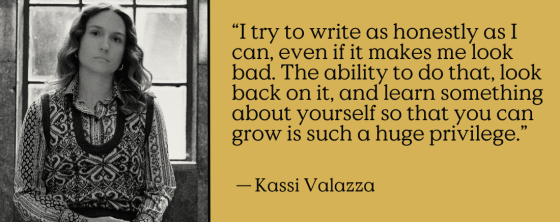
Speaking of nature, how does it inform your music and creative process?
On [2023’s Kassi Valazza Knows Nothing] nature was a major influence, because when I was living in Portland I was always outside. I even lived out in the country for a while in a yurt house and wrote a lot of songs there. But on this new album a lot of it was written from my bedroom – or at least somewhere inside – and I think it shows in the lyrics. There’s just not a lot of imagery of the outdoors, which is what makes this project stand out against my others. That being said, I miss having nature as a reference, so it’ll be nice to get back to hiking and camping again soon.
You just mentioned From Newman Street being mostly written in isolation, from your bedroom. Does that mean this is a pandemic record or were these songs born more recently than that?
It’s actually not related to that at all. It’s all pretty recent from the past two years. I went through a weird phase where I was a little bit depressed and shut in and wasn’t going out as much, because my mental health had hit a low. These songs are a reflection of where I was physically and mentally during that time.
With that in mind, tell me about the song “Your Heart’s A Tin Box,” which seems to be a rumination on the sacrifices of being a working musician. Was there a specific moment that inspired the song, or rather an accumulation of many?
It’s a mix of both and definitely a wrap up of my last year. The opening line (“Walking through the airport/ With no money I can spend…”) was written in the airport when I was walking around after just getting back from my European tour. There’s this thing that happens when you play overseas where they don’t pay you right away, because they have to go through all the venues and booking agents first. I had been there for almost two months and had no money, not even enough to buy water in the airport after I landed.
It’s one of those things where I don’t know whose fault it is, but it’s not set up to benefit the musicians at all, which has been really hard to cope with. A lot of friends have been dealing with it, too, because in general there’s not many people or organizations out there protecting musicians these days – it’s kind of like the Wild West.
Nobody should have to beg for money they earned. Due to the touring associated with my work I have all kinds of expenses – from plane tickets for my band and I to hotels, gas money, rental cars, and more – that quickly pile up. You end up having to put it all on a credit card hoping you can pay it off when you’re all done and the timing of it just never quite adds up.
View this post on Instagram
The repetitive cycles and costs associated with touring that you touched on there remind me of another song, “Roll On,” which I understand is about repeating patterns, but in the context of a relationship rather than the music business?
Yes! I had been in a relationship that wasn’t working for me, but kept trying and trying to fix it. It felt like I tried 13 times to put a Band-Aid on it, which led to the song coming along very easily almost as soon as I sat down to write it. It was a scenario where I loved the person so much and wanted to make it work before realizing that I just had to let it go.
Listening to it and “Time Is Round” – which directly precedes “Roll On” on the album – I couldn’t help but think of the two as sister songs where you’re trying to chase time only to realize what’s meant for you will come back around eventually?
I’ve never thought about it like that, although they are both about different relationships with people and myself. “Roll On” was about a relationship that wasn’t working and “Time Is Round” is one I wrote at the start of a new relationship and trying to gauge the situation to assess whether I was repeating the same mistakes. Now that you mention it, maybe there is some kind of correlation there.
Glad I could be of service!
One last song I wanted to ask you about was “Birds Fly.” I love everything from the trance-like arrangements on it to the lyrics, which seem to be about sitting around and marinating in your own thoughts as the world moves around you. Is that what you were trying to convey there?
A lot of that song is just me disassociating from my feelings, which is captured in the vibe of the music. It just reflects me laying in bed and avoiding conflict and the various issues in my life.
Erik [Clampitt], who played pedal steel on the album, really leaned into that with the bird sounds he created with the pedal steel. Then you’ve got Sydney Nash playing vibraphone, which is such a calming, comfortable instrument to listen to. Then Tobias [Berblinger] is doing all the synths behind her. I wanted to create a little pad for somebody to lay down on and listen.
Well, mission accomplished! What’s your songwriting process look like – from what I understand you almost exclusively write on your own?
I do, but the process definitely gets changed up a lot. Oftentimes I’ll find something that works and keep doing it until it eventually runs its course before finding something else. Lately it started a lot with the melody first and struggling to find lyrics to put with it. A lot of Knows Nothing – and this record too – came from poems I’d written down in my journal and added a melody on top of. When I hiked a lot they’d sometimes come up at the same time, and other times they’d pop into my head unexpectedly. It’s always different – I’m not capable of relying on one specific process.
Whether it’s sitting with your thoughts in bed, journaling them, or putting them to song, what’s something that music has taught you about yourself?
I have a lot of big feelings and go through waves of depression and anxiety, which can make it hard to know what’s real and focus on the present. The beautiful thing about art and songwriting is that you get to capture a moment that you can look back on later.
Sometimes things aren’t very clear, whether it’s confusing relationships or not being your best self.
I try to write as honestly as I can, even if it makes me look bad. The ability to do that, look back on it, and learn something about yourself so that you can grow is such a huge privilege and something that’s been wildly beneficial to my mental and physical health. If I wasn’t making art I’d be a much unhappier person, that’s for sure.
Photo Credit: Kait De Angelis

